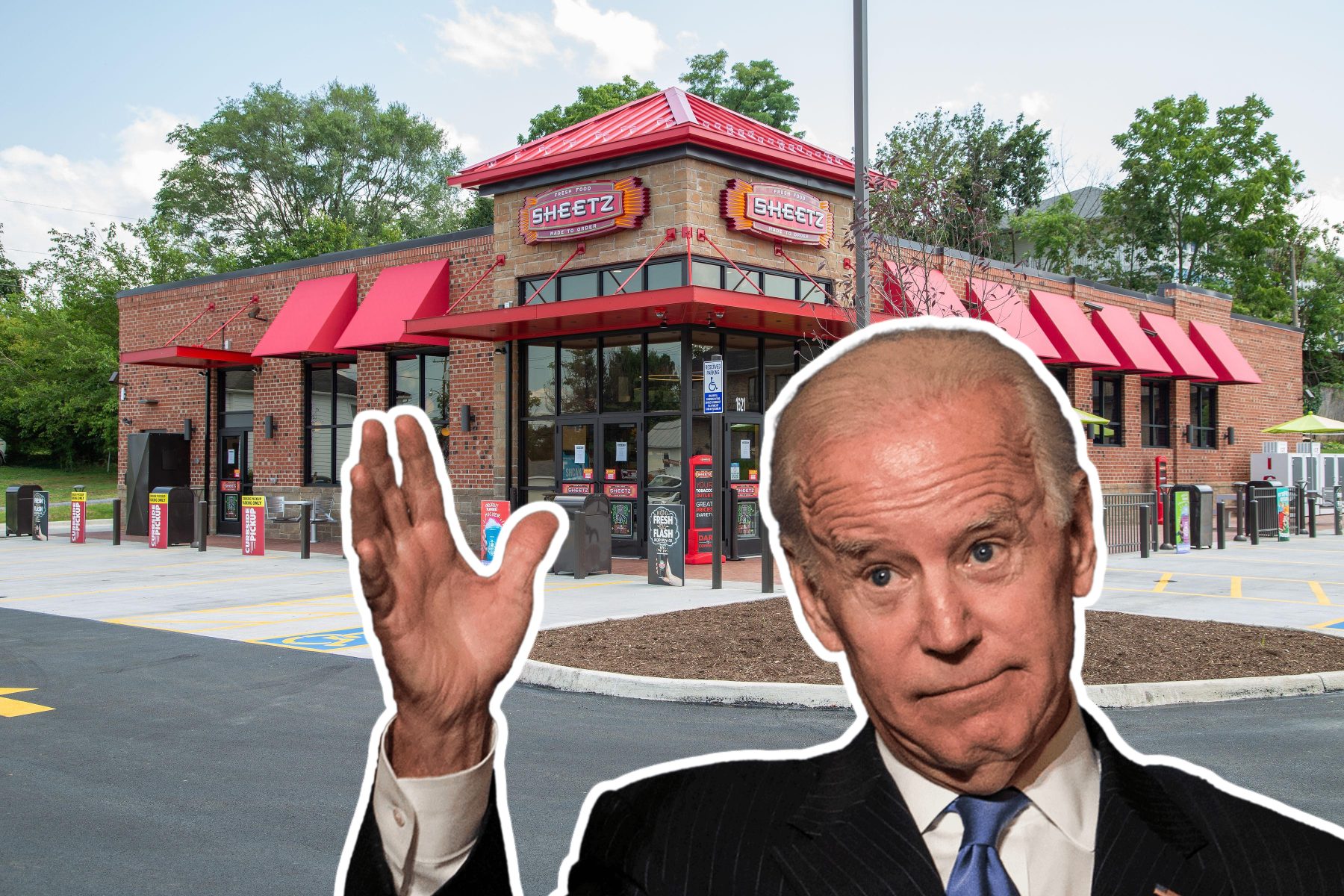In a move that has eyebrows raising and heads shaking across the nation, the Biden regime, hot on the heels of an embarrassingly quiet photo op at a Sheetz gas station, decided to sue the convenience store chain for discrimination. The timing? Just one day after Biden’s less-than-stellar visit. Talk about bad optics.
Sheetz, a well-known convenience store chain with over 600 locations across six states, is being accused by the U.S. Equal Employment Opportunity Commission (EEOC) of violating federal law. The charge? Denying employment to applicants based on their criminal history, a practice the EEOC claims disproportionately affects Black, Native American/Alaska Native, and multiracial applicants.
Press Release
04-18-2024
EEOC Sues Sheetz, Inc. For Racially Discriminatory Hiring Practice
Federal Agency Charges That Employer’s Criminal History Screening Causes Discriminatory Impact Against Black, Native American and Other Workers
BALTIMORE – Sheetz, a large convenience store chain, violated federal law by denying employment to a class of job applicants because of their race, the U.S. Equal Employment Opportunity Commission (EEOC) charged in a lawsuit filed today.The EEOC filed suit against Sheetz, Inc.; Sheetz Distribution Services, LLC; and CLI Transport, LP (collectively, Sheetz), which together operate a chain of convenience stores with over 600 locations in six states. According to the lawsuit, Sheetz has maintained a longstanding practice of screening all job applicants for records of criminal conviction and then denying them employment based on those records.
The EEOC charges that Sheetz’s hiring practices disproportionately screened out Black, Native American/Alaska Native and multiracial applicants. Sheetz’s companywide hiring practices violated provisions of Title VII that prohibit disparate impact discrimination, the EEOC says. The lawsuit does not allege that Sheetz was motivated by race when making hiring decisions.
Such alleged conduct violates Title VII, which prohibits facially neutral employment practices that cause a discriminatory impact because of race when those practices are not job-related and consistent with business necessity or where alternative practices with less discriminatory impact are available. The EEOC filed suit in U.S. District Court for the District of Maryland, Northern Division (U.S. EEOC v. Sheetz, Inc., et al., Civil Action No. 1:24-cv-01123-JKB, after first attempting to reach a pre-litigation settlement through its conciliation process.
“Federal law mandates that employment practices causing a disparate impact because of race or other protected classifications must be shown by the employer to be necessary to ensure the safe and efficient performance of the particular jobs at issue,” said EEOC Regional Attorney Debra M. Lawrence. “Even when such necessity is proven, the practice remains unlawful if there is an alternative practice available that is comparably effective in achieving the employer’s goals but causes less discriminatory effect.”
EEOC Philadelphia District Office Director Jamie R. Williamson said, “This highlights the significance of the observance of April as Second Chance Month, underscoring our nation’s commitment to reintegrating individuals with criminal records into society by ensuring they have fair access to employment and other essential services. To that end, the EEOC is dedicated to making sure that individuals with criminal records are not unlawfully excluded from employment opportunities because of race.”
Now, let’s cut through the government-speak. The lawsuit doesn’t claim Sheetz was intentionally discriminatory. Instead, it argues that their hiring practices have an unintended discriminatory impact because of how they screen for criminal convictions. This is a classic case of “disparate impact” discrimination, where policies not directly related to job performance inadvertently screen out certain groups more than others.
But here’s the rub: isn’t it reasonable for a business to want to check the criminal backgrounds of potential employees, especially when those employees will be interacting with the public, handling money, and managing inventory? It seems like common sense, doesn’t it? The EEOC, however, suggests that there might be less discriminatory ways to achieve the same ends, though what those are exactly remains frustratingly vague.
This lawsuit raises important questions about the balance between giving people a second chance and ensuring the safety and integrity of a business. April is Second Chance Month, dedicated to reintegrating individuals with criminal records back into society. While the sentiment is noble, the practicality is complex. Is it fair to potentially put a business at risk in the name of reducing discrimination?
The timing of this lawsuit cannot be ignored. Coming a day after Biden’s visit, it smacks of political theater. One can’t help but wonder if Sheetz is being unfairly targeted because of an awkward photo op. It’s essential to fight against discrimination, but lawsuits like these must be carefully considered, not used as tools for political retribution or to make headlines.
While the Biden administration’s intentions may be to combat racial discrimination, the reality is that businesses like Sheetz face real challenges in hiring. Policies should protect both the rights of individuals and the needs of businesses.


Leave a Comment